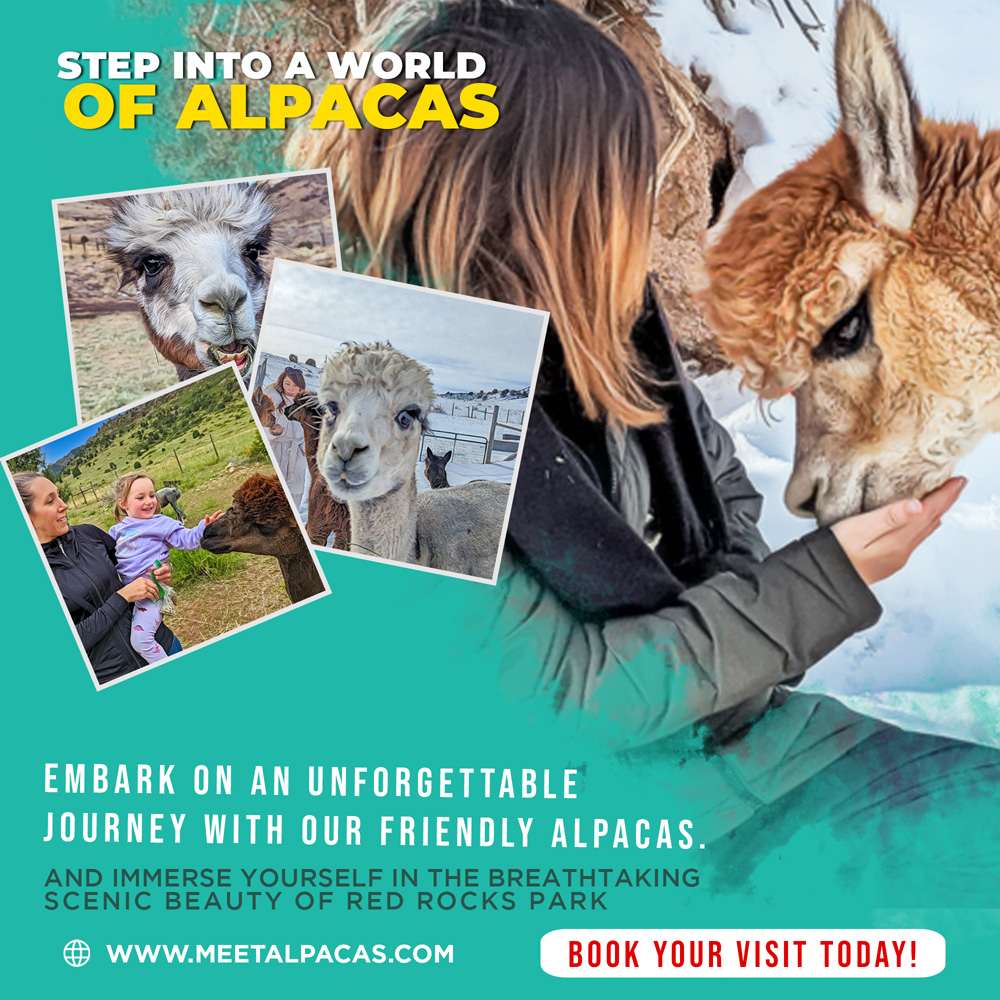Denver, Colorado alpaca adventures package right now
Denver, Colorado alpaca adventures package right now
Colorado alpaca adventures package today: Alpaca farms offer more than just a chance to get closer to nature; they also promote sustainable farming practices. Alpacas have less impact on the environment than other livestock, largely due to their soft feet that prevent soil compaction and erosion. Their grazing patterns also help to promote biodiversity in pastures, and their manure (nicknamed “alpaca gold”) is a great natural fertilizer. Additionally, alpacas have a longer lifespan and a high reproductive rate, making them a more stable source of revenue for farmers. See additional information at alpaca adventure tours in Denver, Colorado.

As with any type of farm, the profitability of an alpaca operation is highly dependent on a number of factors. The quality, color, and sex of the herd and the strength of the overall industry can all impact income results. It is also important for new farm owners to engage an accountant for assistance with setting up bookkeeping systems and determining tax returns. When considering buying a herd of alpacas, consider the total cost of ownership. In addition to purchasing the herd, you’ll need to invest in a barn, fencing, irrigation, and fertilizing equipment. You’ll also need to have a plan for shearing, which can be a big-ticket item and is typically held annually. Lastly, there is the labor and investment of attending shows and promoting the herd to potential buyers.
Nowhere else but here will you have the same opportunity to experience Alpacas in the open beauty of nature. Get nose-to-nose with Pablo Picasso just one of our resident furry friends. Come explore the scenic mountain views where you can hand-feed a healthy snack to our friendly Alpacas. Live entertainment is part of the fun. Learn fascinating facts about these majestic creatures, and go behind the scenes into a fiber producing Alpaca farm. Chances are, you’ll make a new friend on your visit. For all ages, this is a once in a lifetime opportunity.
Alpacas breed once a year, and as livestock they are often induced to breed at any time. The female alpaca has a gestation period of 242 to 345 days and gives birth to just one offspring. The birthing process can take up to seven hours, according to National Geographic (opens in new tab). The baby alpaca, called a cria, weighs 18 to 20 lbs. (8 to 9 kg) when it is born. The cria is weaned at 6 to 8 months, and females are ready to reproduce at 12 to 15 months. Males take a bit longer to mature and are ready to mate at 30 to 36 months. Alpacas live up to 20 years.
Additionally, if you have any accessibility concerns that make hiking impossible, then there are also places to sit down next to the alpacas, which makes this activity available to everyone regardless of their ability or needs. The Smooth Alpaca Experience just so happens to have scenic mountain views of Red Rock Park. Yes, that’s right, the iconic Red Rocks Park and Amphitheatre where hundreds of concerts are held each year. Combine a visit to the venue with an alpaca experience. When you go behind the scenes on the ranch, you learn about much more than just the animals. You have the opportunity to talk about the economy, trade, production, local handmade goods, and so much more.
Do alpacas make noise? Alpacas are very quiet, docile animals that make a minimal amount of sound. They do make a humming sound as a means of communication or to express concern or stress. Most communication between alpacas is nonverbal. Occasionally you will hear a shrill “alarm call,” which usually means they have spotted something of concern nearby, and they are warning others in the herd. The concern may be a predator, or may be something they are not familiar with, like a cow or horse in a neighboring field. Male alpacas also “serenade” females during breeding with a guttural, throaty sound called “orgling.” Discover even more information at https://meetalpacas.com/.
As with all livestock, owners and visitors should use common sense and a degree of caution when working around alpacas. People working with alpacas should wear long pants and shoes or boots that have traction and cover the whole foot. Proper handling of alpacas, as well as all camelids, requires humans gaining their trust by using a calm voice and light restraint. Handling alpacas for herd husbandry is best taught to novice alpaca owners by experienced owners or experts.
Can alpacas thrive in locations with very hot or very cold climates? Generally, yes. Alpacas are amazingly resilient animals and have adapted successfully to the extremes of both very hot and very cold climates. In hot, humid climates, alpaca owners need to take extra precautions to make sure that the alpacas do not suffer from heat stress. These include shearing fleeces early in the year, providing fans and ventilation in the barn, and offering cool fresh water for drinking.
Wild guanacos and vicuñas live in a wide range of habitats, from the high and dry Atacama Desert in northern Chile to the wet and stormy Tierra del Fuego at the southern tip of the continent, according to the ADW. Alpacas are also native to the Andes, at elevations of up to 15,750 feet (4,800 meters). Alpacas, however, are very adaptable and have been exported all over the world, including the United States, New Zealand, Australia and the Netherlands, so their “habitat” is often farmland. Still, 99 percent of the world population of alpacas is found in South America, according to the ADW.
